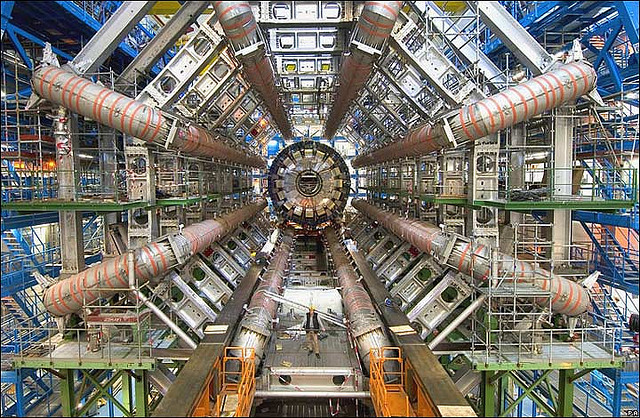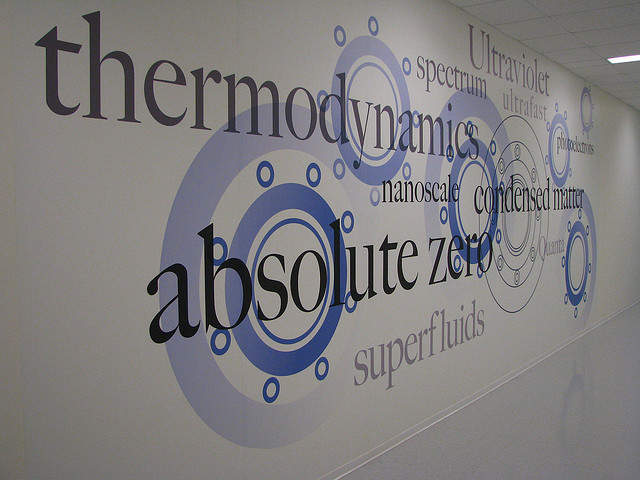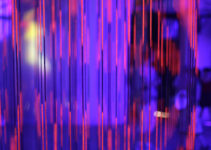I want to discuss one of the hypothesis currently being worked on at University of Maryland in theoretical physics that blew my mind. Before I do that though, I have to discuss the specifics and merits of theoretical physics this week. The blog entry was getting too long so I decided to split it into two entries. Next week, I will blog about the hypothesis, which is on the nature of reality (keeping it vague for now but it involves the movie The Matrix! =] ).
What is theoretical physics? Theoretical physics is a sub-field within the field of physics that tries to model ideas and notions through conjunction of physics and math. Much of it involves devising and using mathematical equations or complex models in an attempt to explain something that occurs in nature.
Note one important thing: it deviates slightly from traditional science as theoretical physics may not be based on direct observation noticed in nature because many ideas are brought up to explain something out of the ordinary that cannot be observed or directly experimented with. For instance, the concept of multiverse -the idea that many parallel universes exist outside our own universe- may not be possible to observe directly, but the idea is there for discussion, debating, modeling, and creating math equations. Multiverse is currently a hypothesis and not a scientific theory yet (may never become a scientific theory without some evidence).
In some ways, theoretical physics intersects with philosophy. While philosophers are not usually theoretical physicists, I argue that theoretical physicists are usually both physicists and philosophers as well. Reason being that many of these ideas are very complex, often not observable, and counter-intuitive that you have to work differently. When you cannot use observations, you have to think philosophically by creating models and extensive thought experiments that act as arguments to understand an issue and balance different arguments. You may say “well, so does science!” Difference here is many of these things cannot be observed or experimented with because it’s not technologically or logically feasible yet (you cannot make a blackhole in a lab to do experiments with or pick up the phone to speak with living beings in other universes!). More on this later.
Science vs Philosophy
It’s not always easy to differentiate between science and philosophy since both overlap to some degree. Here’s one differentiation: philosopher Bertrand Russell once said “Science is what you know, philosophy is what you don’t know”. Philosophy is more about asking questions and science is more about answering questions. That obviously doesn’t mean there is no overlap because in order to answer questions, you need to have questions to ask. Anyone that states you don’t need to philosophize to do science is incorrect because the very act of asking questions and hypothesizing is philosophizing. That’s where the line between science and philosophy blurs.
Of course, that does not mean there are no differences.
There has been friction over the centuries between scientists (physics specifically) and philosophers. At one point, both were essentially the same until perhaps Isaac Newton in late 17th century (1670+). Even at that point, they were still together, but slowly they began dividing into their own fields.
The split began to manifest around the time Newton created Calculus in his late-20’s. The benefit of calculus is it opens up entire new areas of science advancements (and engineering) beyond just thinking through armchair theorizing that philosophers were mainly employing.
You ask “Why does apple fall from the tree?” Philosopher might sit there thinking to self “Might be because apple is too heavy for the tree” – Greek philosopher Aristotle thought that. Aristotle’s explanation is very intuitive and within the bounds of common sense in 350 BC (2,365 years ago). Unfortunately, the concept of gravity is very counter-intuitive and very complex that you cannot just sit there and figure it out by just thinking, no matter how smart you may be. The myth that an apple fell on Newton’s head, and suddenly he figured out gravity is exactly what it says – a “myth.” It took Newton decades of studying the works of others before him, reading, writing, thinking, practicing math, teaching, doing research to slowly put together the entire theory of gravity in his mid-40’s.
Unlike Aristotle, a physicist might instead look to other objects in solar system and calculate math (by creating Calculus!) to figure out that motion, acceleration, velocity of different objects are dependent on each other along with the object they are revolving around and their rotation along it’s axis. From that, you can figure out that every object has force of gravity, and then you can argue that apple falls from tree because of this thing called gravity – Newton did that.
Aristotle, in his day, had no telescope, had only basic arithmetic to work with, had no idea the Earth was circular, had no idea the Earth rotated, and had no idea everything revolved around the sun (had no idea that everything was constantly moving in solar system either — there was no concept of galaxies yet until almost 2,000 years after Aristotle in late 1700’s). I let Aristotle off the hook here.
There are clearly differences in the process and approach between physics and philosophy. In generalized terms, philosophy is devising arguments through thinking and debating while traditional physics is practical experimentation with some overlaps. Theoretical Physics is somewhere in between but deeply instilled in scientific method using math.
Theoretical Physics vs Experimental Physics
Isaac Newton was the first theoretical physicist as he created the field and revolutionized science (arguably had greater impact than even Einstein). The most well-known theoretical physicist of all time is, of course, Albert Einstein, who surpassed Newton. The most famous theoretical physicist alive today is perhaps Stephen Hawking, whose focus is astrophysics and cosmology. Other famous ones alive are Peter Higgs (Higgs field), Edward Witten (String Theory), Steven Weinberg, are up there too and many others.
Theoretical physics is very challenging, but also very rewarding. It is often the theoretical physicists that push the bounds of physics by developing the concepts first using math and pure logic. Experimental physicists afterwards attempt to test the idea/mathematical theory through experiments. Obviously, many things cannot be tested directly or observed so they stay in the realm of theoretical physics. More often than not, good physicists can do both, and often the line between the two becomes blurred.
Theoretical physicists and experimental often work together as well. CERN’s Large Hadron Collider (LHC) is one example of experimental physicists trying to catch up to theoretical physics by finding the things that theoretical physicists say must exist based on the models and math. They work together in analyzing the data and in the process forming new ideas & arguments.

Photo by imageeditor / CC BY / LargeHadronCollider
The Higgs Boson, also uncommonly known as the God Particle since it gives mass to other particles, was expected to exist almost 50 years ago before the LHC found it through particle collisions in 2012. Theoretical physicists already had the math down and knew the characteristics of Higgs Boson, but they didn’t get actual observations until the LHC.
There are times when theoretical physicists have to wait on experimental physicists to test a theory. Einstein’s general relativity wasn’t tested until 1919 (about 4 years after releasing paper), and it wasn’t fully tested until late 1950’s. Before 1919, general relativity was strictly a mathematical formulation, but it became widely accepted mainly after 1919. Almost overnight in 1919, Einstein began to be hailed as one of the smartest humans ever for his work over previous 2 decades on special & general relativity, which toppled the great Sir Isaac Newton.
In similar manner, theoretical physics often swerves outside the boundaries of traditional definition of science, which is based strictly on direct observations and experimentation. A lot of theoretical physics findings stay as mathematical theorems or hypotheses since data may not possible to collect without further advances in technology.
Conclusion
One thing that makes theoretical physics awesome is you work at the forefront of science trying to find answers to new things that we humans don’t yet have the technology to experiment with.
These are often also things that we currently have limited understanding of. Theoretical physicists attempts to raise the roof by coming up with new ideas not thought of yet or solving old problems with new perspectives. That area is where things begin to blur with philosophy.
They are also well-known for inventing entire new maths just to solve a new sort of predicament not faced before. In that process, they end up revolutionizing not just physics but math as well (along with technology, engineering, and million other fields).
Next week, supersymmetry will be looked at (more specifically something called adinkras in string theory). More on it later!
- My Favorite Books - February 7, 2024
- Review of Carl Sagan’s The Demon-Haunted World - January 31, 2024
- The 75 Greatest Films of All Time - December 22, 2023





